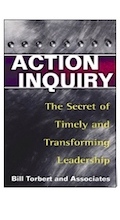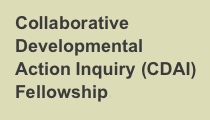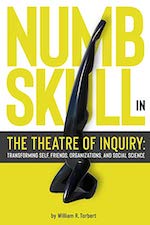The Marathon bombing and the gradually unfolding story of the motives of the bombing brothers has fueled an ongoing meditation worldwide – but especially in the U.S., particularly in Boston, and perhaps most specifically among those of us at the Action Inquiry workshop – about what kind of power can create the world we all want, where everyone can feel and act in relatively empowered ways without destroying others’ freedom to do so as well. The Marathon bombing is, of course, not the only, nor the most devastating in sheer terms of number of people killed, of recent bombings (on that same day twenty were killed in Mogadishu, Somalia, and thirty-seven were killed in Iraq; and an American air strike killed 10 children in Afghanistan the week before).
What are the prospects for humanity’s fate, faced by our global interdependence, so long as unilateral power remains our reactive choice when we feel powerless? …So long as the very concept of mutual power remains widely unknown, and so long as the alert, disciplined, and intentionally vulnerable exercise of mutual power remains unpracticed?
The exercise of unilateral power sometimes makes people temporarily conform with what the power wielder wants; but unilateral power is powerless to cause people or institutions to transform. Today, fewer than 5% of the world’s population ever develop beyond the Dependent (Impulsive, Opportunist, and Diplomat) and the Independent (Expert, Achiever, and Redefining) leadership action-logics to the Inter-Independent leadership action-logics (Transforming, Alchemical, and Ironic). We at Action Inquiry Associates and the Action Inquiry Fellowship are deeply committed to mastering and sharing the practices of Inter-Independence, of Collaborative Developmental Action Inquiry, and of the exercise of mutual power.
We invite you to consider attending our one of our 2013 workshops (e.g. Mary Stacey and Bill Torbert’s Authentic Leadership in Action module June 16-21), or one of our early 2014 workshops or workparties in England, Australia, and Vancouver.
Brief Definitions of Eight Types of Power
Types of Unilateral Power
- Coercive power : “comes from the barrel of a gun.” (Opportunist action-logic)
- Charming power : charisma, diplomacy, covert manipulation, self-disclosure, support… (Diplomat)
- Logistical power : the use of logic, professional disciplines, systems analysis, institutional position or process to get something done. (Expert)
- Productive power : actually producing a product, service, or sheer action valuable to self or others, most often in co-ordination with a team. (Achiever)
- Visioning power : use of the imaginative, mutually-trust-building faculties and disciplines, alone in nature or with committed colleagues or friends in society, to create a new vision for this conversation, meeting, organization, etc. (Redefining)
- Praxis power : the collaborative, inquiring power, with others, to occasionally spot, to sometimes articulate, and to at best correct incongruities among visioning, strategizing, performing, and assessing outcomes). (Transforming)
- Mutually-transforming power : the first- and second-person practices of vigilant and vulnerable presence to one another that generates power via love and inquiry more than via force, money, expertise, or institutional position. (Alchemical)
- The power of liberating disciplines : a leadership team – interweaving the foregoing seven kinds of power in timely ways – generates third-person structures, task boundaries, and action inquiry challenges that improve organizational or communal outcomes, offer practice in exercising mutual power, and thus help members and subdivisions transform toward increasing integrity, mutuality, and sustainability. (Ironic)
Types of Mutual Power








{ 0 comments… add one now }